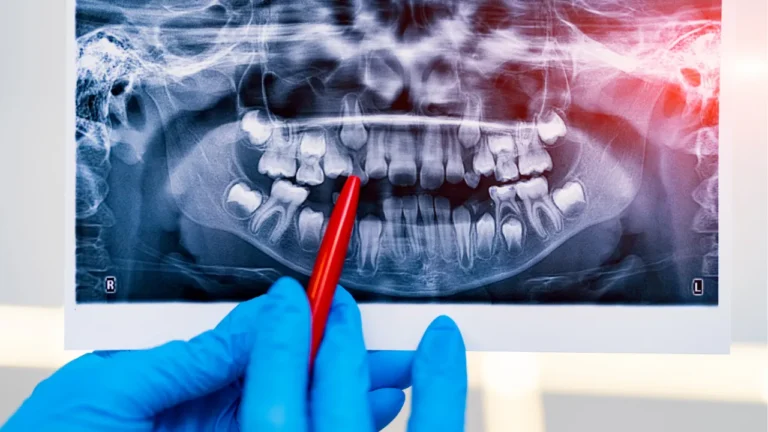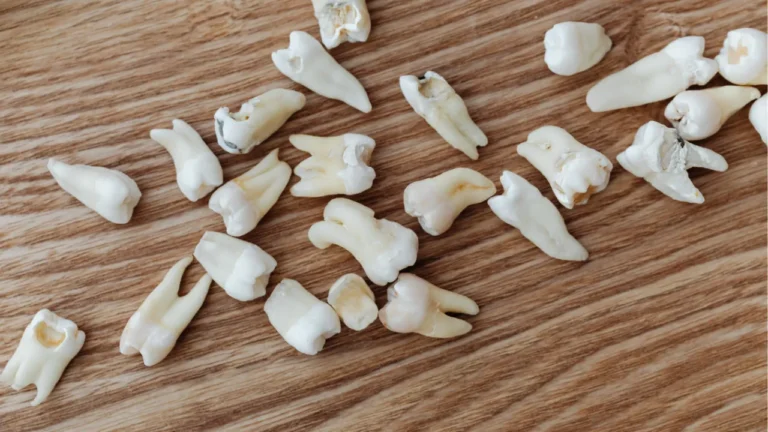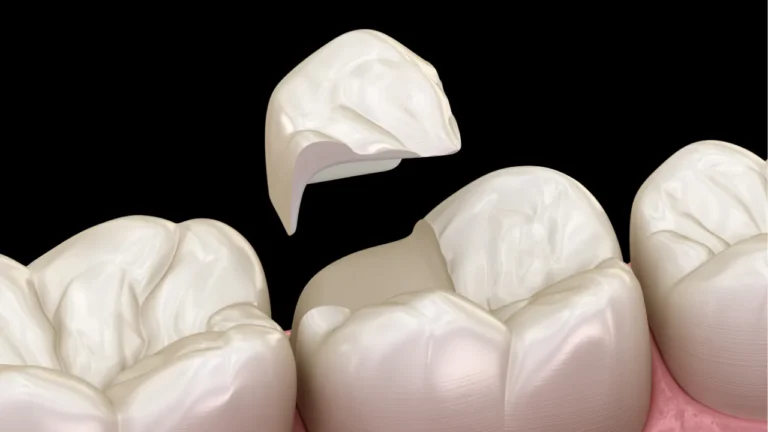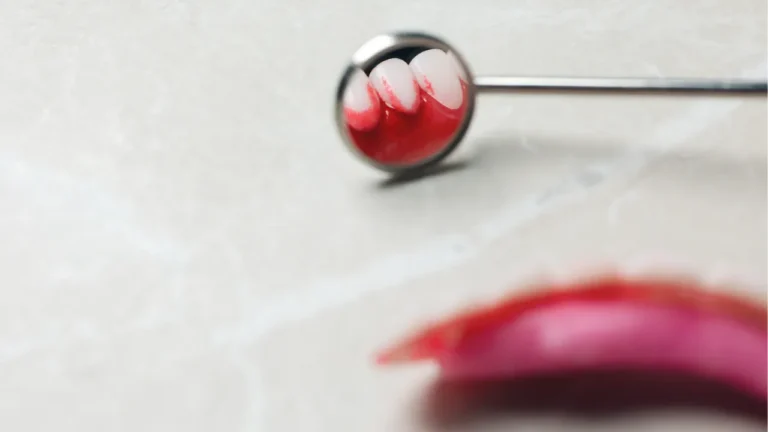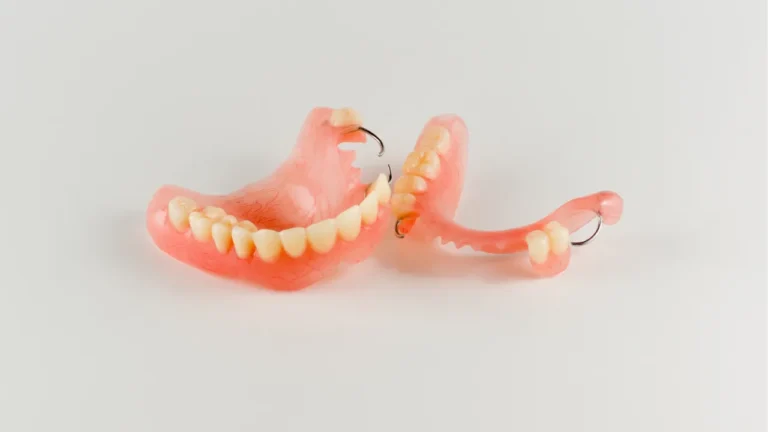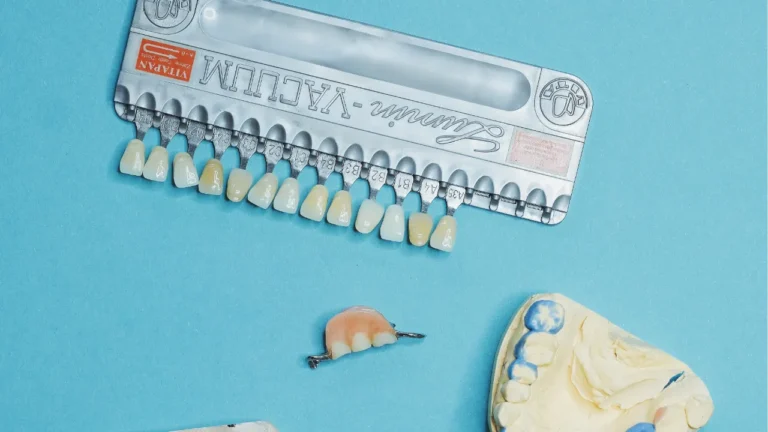Feeling stressed lately? You’re not alone. Stress is a common part of our lives, but did you know it can affect more than just your mood?
It turns out, stress can have a significant impact on your oral health too.
In this article, we’ll explore how stress can wreak havoc on your teeth and gums, and what you can do to protect your smile.
Quick Summary
- Stress can disrupt your oral hygiene habits, leading to plaque buildup.
- It may cause dry mouth, which increases the risk of cavities and bad breath.
- Stress can trigger canker sores and worsen discomfort.
- Teeth grinding (bruxism) linked to stress can damage teeth and fillings.
- TMJ disorders may worsen under stress, causing jaw pain and stiffness.
- Healthy coping mechanisms like exercise, relaxation, and professional help can reduce both stress and its effects on your oral health.
Understanding Stress
Stress is your body’s natural response to pressure or demands.
It can be triggered by various factors, such as work, relationships, finances, or even traffic jams.
When you’re stressed, your body releases hormones like cortisol and adrenaline, preparing you for a “fight or flight” response.
While short-term stress can sometimes be beneficial—helping you stay focused or energized—chronic stress can have negative effects on your overall health, including your oral health.
How Stress Affects Your Oral Health
Stress is a part of life, but when it becomes chronic, it can lead to serious oral health problems. The connection between stress and oral health is a two-way street: on one hand, stress can manifest physically in ways that affect your mouth. On the other hand, oral health problems can contribute to stress and anxiety. Let’s take a closer look at some of the most common ways stress can impact your oral health.
1. Poor Oral Hygiene Habits
When you’re overwhelmed, it’s easy to neglect your oral hygiene routine.
You might skip brushing or flossing, or you may not brush for as long or as thoroughly as you should.
This can lead to a buildup of plaque and tartar, increasing your risk of cavities and gum disease.
2. Dry Mouth
Stress can cause a decrease in saliva production, resulting in dry mouth. Saliva plays an important role in keeping your mouth healthy by washing away food particles and bacteria. A lack of saliva can contribute to tooth decay, bad breath, and even oral infections like thrush.
3. Canker Sores
Canker sores are small, painful ulcers that form on the inside of your mouth. Stress is a common trigger for these sores, which can make eating and speaking uncomfortable. While canker sores usually heal on their own, persistent sores may require a visit to your dentist.
4. Teeth Grinding (Bruxism)
Teeth grinding, or bruxism, is a common condition that can be worsened by stress. Grinding can wear down your teeth, cause jaw pain, and lead to headaches. If left untreated, bruxism can result in serious dental issues such as cracked teeth or damaged fillings.
5. TMJ Disorders
Stress can exacerbate symptoms of TMJ (temporomandibular joint) disorders, which affect the jaw joint and surrounding muscles.
Symptoms may include pain, stiffness, and difficulty chewing. Managing stress is crucial for reducing the severity of TMJ disorders.
Coping Mechanisms
Managing stress is key to protecting your oral health. Here are some effective strategies to help you reduce stress and maintain a healthy smile:
1. Exercise Regularly
Physical activity is a natural stress reliever. Exercise can lower stress hormones, increase endorphins (your body’s “feel-good” hormones), and improve your overall well-being.
Aim for at least 30 minutes of exercise most days of the week.
2. Practice Relaxation Techniques
Incorporate relaxation techniques like deep breathing, meditation, or yoga into your daily routine.
These practices can help calm your mind, reduce stress, and improve your mental and physical health.
3. Seek Professional Help
If you’re feeling overwhelmed by stress, don’t hesitate to reach out to a therapist or counselor.
Professional guidance can help you develop healthy coping strategies and manage stress more effectively.
In terms of oral care, remember to
- Schedule regular dental check-ups: Your dentist can spot early signs of dental problems and provide personalized advice for maintaining oral health.
- Practice good oral hygiene: Brushing twice a day, flossing daily, and using mouthwash can help prevent tooth decay and gum disease.
- Consider a mouthguard: If you grind your teeth at night, wearing a custom-fitted mouthguard can protect your teeth from damage.
Conclusion
Stress can take a toll on your oral health, but you don’t have to let it control your smile.
By taking proactive steps to manage stress and prioritize oral care, you can safeguard your teeth and gums for years to come.
Remember, a healthy smile starts with a healthy mind and body.


